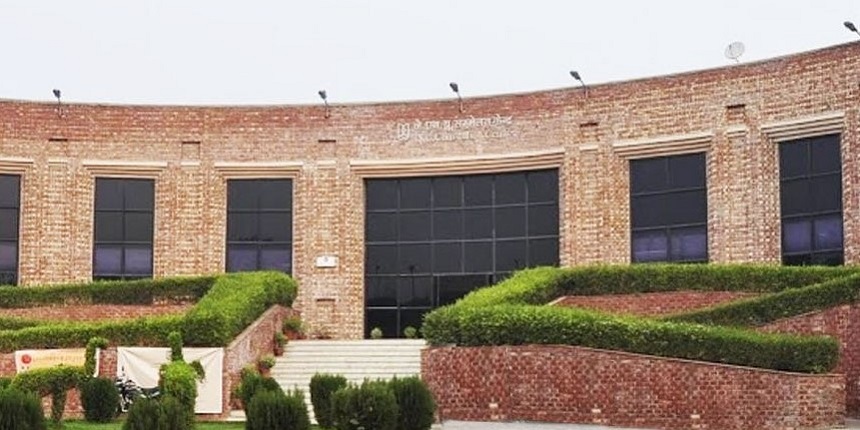'Needless controversy' over new course on counter-terrorism: JNU VC
Press Trust of India | September 1, 2021 | 10:52 PM IST | 3 mins read
The new counter-terrorism course is an optional course being taught to the students of dual degree programme at School of Engineering.

NEW DELHI: Jawaharlal Nehru University Vice-Chancellor Mamidala Jagadesh Kumar on Wednesday said that there was a "needless controversy" about a new counter-terrorism course, without going into its academic merits. His remarks came amid criticism from a section of teachers and students over the content of the course being taught to engineering students.
The way things have unfolded in India's neighbourhood are proving highly detrimental to the country's national security, he said, while asserting that it is imperative that an academic institution like JNU takes the lead and builds a good set of counter-terrorism specialists. Jawaharlal Nehru University (JNU) Professor Arvind Kumar who designed the course, had said on Tuesday it does not target any community and is a purely academic exercise.
JNU had established its School of Engineering in 2018 with a dual degree programme. In this school, students study engineering subjects in first four years for their undergraduate degree and in the fifth year, they enroll for a one year master's degree (MS) in any of the areas of humanities, social sciences, languages, international relations, management, science and engineering, the VC explained.
Also Read | ‘Saffronising education, terrorising Muslims’: JNU students reject new course
"This is in tune with the National Education Policy 2020 which aims to provide holistic and multidisciplinary education to students. It is in this context that three new courses were approved by the Academic Council of JNU on August 17. The courses are 'Counter terrorism, asymmetric conflicts and strategies for cooperation among major powers'; 'India's emerging world view in the twenty first century' and 'Significance of science and technology in international relations'," he said in a statement.
Course on counter-terrorism
A section of JNU teachers and students has objected to the introduction of the course, alleging it states that 'jihadi terrorism' is the only form of 'fundamentalist-religious terrorism'. The course, titled 'Counter Terrorism, Asymmetric Conflicts and Strategies for Cooperation among Major Powers', also asserts that Communist regimes in the Soviet Union and China were the state-sponsors of terrorism that influenced radical Islamic states, according to them.
"During the past few days, there was a needless controversy created about the first course without going into its academic merits. The objective of the course 'Counter Terrorism, Asymmetric Conflicts and Strategies for Cooperation among Major Powers' is mainly to have an in-depth understanding on the challenges emanating from terrorism to India's national security and how India can get equipped with adequate responses in case of any eventuality," the statement read.
India urgently needs a critical mass of specialists in this field, the VC said, adding that the curriculum has been designed keeping in mind terrorist activities at the global level and India's experiences in handling them. "There is a need to further evolve India's perspective in a balanced and objective manner. This course has the potential to build a strong narrative for India. An in-depth understanding of various global and regional terrorist networks is a part of the curriculum of this course," Kumar said.
Also Read | JNUSU president Aishe Ghosh extends support to protesting Visva-Bharati students
"How India has witnessed the rise of religious fundamentalism and radicalisation through perverse ideologies in its neighbourhood is an area where a lot of knowledge is needed to deal with the emerging situations. Students in Indian educational institutions need to be made aware about these complexities and encouraged to develop effective strategies," he said. Asserting that the curriculum is holistic, he said it contains sections on the role of intelligence information and counter-terrorism cooperation among major powers and a section on best practices of counterterrorism and the major global and regional efforts in counterterrorism.
"Science and technology to counter terrorism will also be taught to students. This course will give a broad based knowledge to engineering students. At JNU, we will continue to encourage critical thinking since a university is a place for free inquiry where divergent ideas are encouraged to thrive," he said.
Write to us at news@careers360.com.
Follow us for the latest education news on colleges and universities, admission, courses, exams, research, education policies, study abroad and more..
To get in touch, write to us at news@careers360.com.